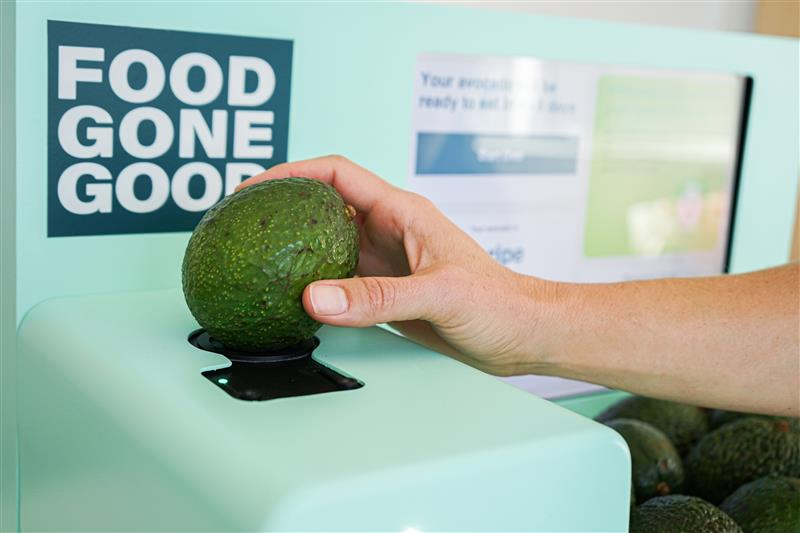Food system innovation company Apeel announced its plan to introduce innovative new solutions that will allow stakeholders across all stages in the fresh produce supply chain to instantly and non-destructively determine the ripeness of avocados. By coupling advanced imaging technology with machine learning, Apeel has increased visibility into internal quality and ripeness, now allowing producers and grocery retailers to make more informed sorting, shipping, and merchandising decisions, which has the potential to further mitigate food waste and help consumers enjoy consistently ripe and reliable avocados.
“Apeel started with a mission to prevent food waste across the supply chain with our plant-based protective coating,” said James Rogers, CEO. “Our mission hasn’t changed, but we are evolving our offerings to further drive change in the food system. The expansion of our technology offerings will increase access to insights to create a smarter supply chain that maximizes the lifespan, quality, and sustainability of fresh fruits and vegetables.”
Apeel’s technology has implications for the entire produce industry and has been optimized to increase value for partners at different stages of the supply chain, as well as for consumers. The company announced several new efforts to deploy this groundbreaking technology, including:
- Deploying an improved AI data model for imaging hardware in produce sorters at packing houses and distribution centers. Developed in collaboration with MAF Industries, these devices scan avocados and instantly group them into categories according to ripeness and dry matter. Once sorted, the fruit can be routed to the optimal retailer based on remaining shelf life to help prevent food waste. The new data model is global, enabling it to be implemented without time-consuming calibration. This inline sorting technology is being tested in a commercial packing house in Europe.
- Launching a first-of-its-kind produce quality scanner for distributors and grocery retailers that can be used to evaluate ripeness and dry matter of individual avocados. These devices are more than 5 times faster than existing methods, do not damage fruit like current methods, and insights are automatically captured in a cloud database to inform receiving, stocking, and merchandising decisions. They are currently being tested at retail locations in North America and Europe.
- Unveiling an avocado ripeness scanner for consumers that could allow grocery shoppers to know the exact ripeness window of produce like avocados before purchasing. The Apeel RipeFinder, which will be available for demo at the International Fresh Produce Association’s Global Produce & Floral Show in Orlando this week, also features a consumer-friendly user interface (i.e., instead of displaying data, it reveals information such as “Your avocado is ready for a salad” or “Your avocado will be ready in about 4 days”).
Ripeness is the leading factor influencing consumers’ avocado purchase and eating decisions, and these advancements can minimize frustration and guesswork of selling, buying, and enjoying avocados at peak ripeness. Prior to development of this technology, avocado ripeness was commonly tested using a penetrometer, a device that uses a needle to punch a hole in the fruit and measure the tenderness of samples. Dry matter, a proxy measurement of oil content, is an industry standard quality indicator, and is determined by a laborious and wasteful process that typically involves microwaving samples. These methods of testing are not only destructive and create food waste, but cannot be applied to a large-scale continuous operation, limiting the amount of available data used to make decisions.

















